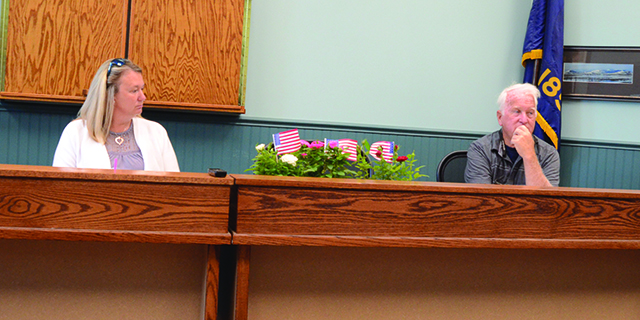Oregon addresses inequities in access to justice
Published 11:12 pm Wednesday, April 10, 2019

- A bill in the state House of Representatives would allow lobbyists to keep money the spend lobbying each other secret.
The Oregon Legislature is tackling the devastating inequities within Oregon’s legal system. A collaborative study by the Oregon State Bar and other legal public interest organizations discovered that only about 15% of low-income residents get the legal representation they need.
The situation is even more grim in rural Oregon communities like Wallowa County. Senate Bill 357 partially addresses this injustice by increasing funding for the non-profit organization, Legal Aid which serves low-income individuals and families at no cost.
In the United States we take pride in the rule-of-law. The idea that the rules apply to everyone equally—that we are all equally accountable in the eyes of the law. But the comprehensive study, “Barriers to Justice” asserts that the demand for low-income legal services far outweighs the supply.
Amy Edwards of the Oregon Law Center, testified that there are “an estimated 807,000 low-income Oregonians who qualify for Legal Aid’s help.” These residents throughout Oregon’s 36 counties simply can’t adequately be served: “We have 116 Legal Aid lawyers working in office located in 17 communities … roughly two legal aid lawyers for every 14,000 low-income individuals.”
For Wallowa County residents, the nearest Legal Aid clinic is in Pendleton. The same office also services Gilliam, Morrow, Umatilla, Union and Wheeler Counties — a combined poverty population of 28,436.
The Oregon Law Center’s Monica Goracke also testified in favor of SB 357. She emphasized the critical presence of Legal Aid to rural communities like Wallowa County. “Rural, low-income Oregonians face unique challenges in accessing legal services, including the distance they must travel to a lawyer’s office,” said Goracke. “The barriers only widen considering the “lack of affordable transportation options.”
Relative to the great benefit for many low-income Oregonians, the cost is very little. Currently Oregon spends $9.78 per-person served. SB 357 would merely increase that to $2.55 per-person.
Perhaps the strongest endorsement comes from Chief Justice of the Oregon Supreme Court Martha Walters herself:
“Our justice system must help every Oregonian know what their rights are and understand where to find legal help,” said Chief Justice Walters. “Every Oregonian deserves a justice system that is accessible and accountable. The legitimacy of our democracy depends on the premise that injustices can be addressed fairly within the bounds of the law.”
“We can and must do better.”









